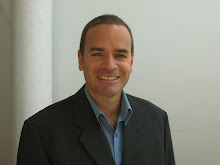
Two weeks ago we celebrated 'Day of the Dead' in Mexico. Its a day when people gather at the grave of their loved ones to remember, think, touch up the grave and have a picnic.
Perhaps this snap that I took sums up death and life in Mexico?
Pete is a missionary with CMS-Australia, working in Mexico and Latin America. This blog contains thoughts, reflections, news and ideas about some of the things that are running around in his head.










In my Ashbury days, this was a completely foreign concept. What could be terrifying about hospitality? Well now I know.
Inviting someone to do something with me is the scariest thing in my life at the moment. Who will I invite? What will I invite them to? What time should I make it? What food should I serve? What are the right snacks and drinks to get? What will my kids do? What will their kids do? How can I help the kids to play together when their languages barely overlap, let alone knowing each other as friends? Will it be too unpleasantly hot to feel comfortable sitting and chatting? Should I try and speak in Spanish, and have this awkward, frustratingly slow, superficial conversation, or do I try and build the friendship more and use English? And how do I arrange it - am I brave enough to use the phone?
Can you see why I find hospitality terrifying?
Fortunately, God in His kindness has shown me a way through the terror. Notice I said "through", not "around". I still experience the terror, but I can do the hospitality as well. The way through has been in small steps, and to trust that being obedient to God is the right way to go. I know that hospitality, and serving people, and building relationships with people to love them, is what God wants, and so I do it.
Apart from hosting a birthday party for Miriam (which kept me awake at night!), the first thing I initiated was an activity outside my home. Then I invited a school mum to come for the afternoon. This gave me confidence to invite another mum for the afternoon. She and her whole family ended up staying for a spontaneous dinner. This gave me confidence to invite another family for lunch (which ended up being dinner at their brother's place with a pool).
I still feel the terror. I still feel that I get lots of things wrong. But I do it. And I'm learning as I go. And God has never let me down.
 The front of the main cathedral in Zacatecas
The front of the main cathedral in Zacatecas

 A couple of weeks ago we went to a waterfall where they had kids rides and picnic stuff. This is a twisty, deep fried potato with sauce!
A couple of weeks ago we went to a waterfall where they had kids rides and picnic stuff. This is a twisty, deep fried potato with sauce!